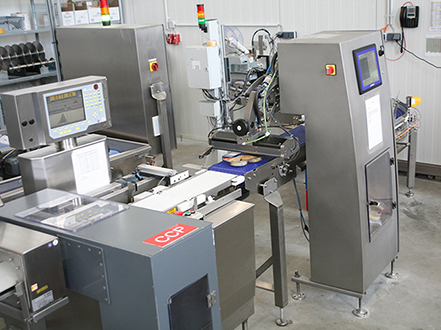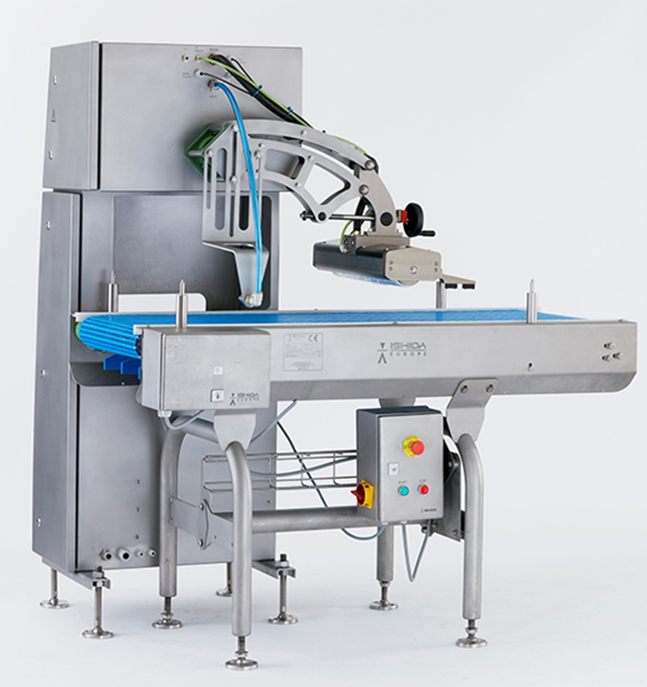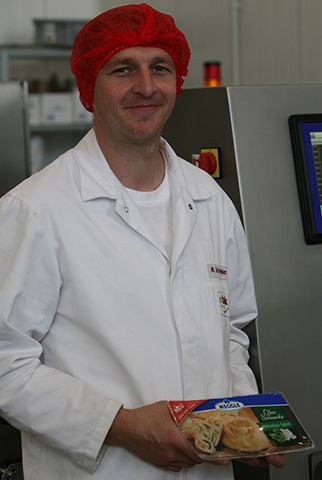The “Ofen Schnecke” is a small puff pastry product that is available in two versions, filled with a combination of feta cheese and fresh herbs or spinach. The rolls, which need to be warmed up in the oven before consumption, are packed in thermoformed trays each containing two or three products, with fill weights of 180g and 300g.
“We used to perform a visual inspection of smaller batches,” says Marcel Schwebler, head of the packaging department at M-Back. “However, this process was no longer practical, as output had increased significantly. So we looked for a fully automatic quality control solution that is 100% reliable.”




